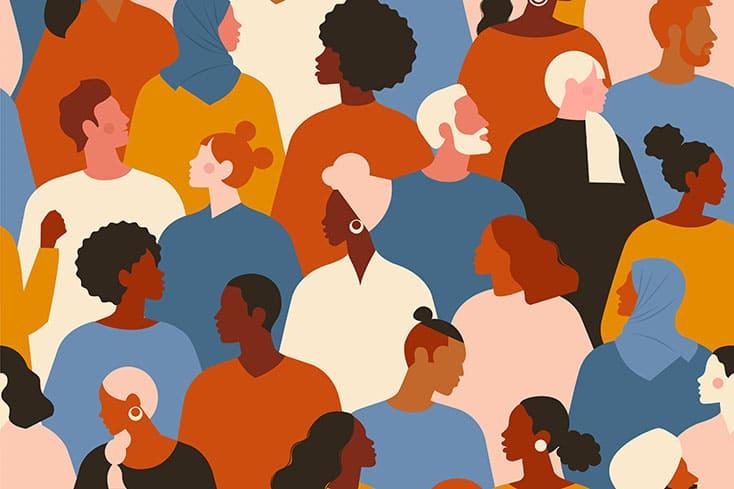
Source: National Alliance on Mental Illness
New Coalition to Support BIPOC Mental Health in Dane County
MADISON, Wis. (CIVIC MEDIA) – July is Black, Indigenous and People of Color Mental Health Awareness Month.
A study from Mental Health America shows in 2023, one in five Americans is dealing with mental illness. Healthcare disparities can worsen mental health for people of color.
It’s hard for anyone to find a mental health provider that works for them. They have to accept their insurance, work with their schedule, and most of all, feel like the clinician understands them.
Systemic racism can exacerbate barriers for people of color. So can stigma.
According to the National Institute of Mental Health, 39% of Black people experiencing mental illness receive treatment. For Hispanic folks, that number is 37%. Meanwhile, 51% of their white peers get mental health treatment.
There’s a new partnership in Dane County aimed at addressing these disparities. The BIPOC Mental Health Coalition includes mental health care providers and a diverse group of community leaders.
“One important key is go to the source,” said Danielle Mitchell-Vance, from Journey Mental Health. “Include the source, include our BIPOC communities in these conversations on how can we improve mental health for [them].”
One big part of that equation is cultural competency. That means having providers who understand someone’s background and environment. They don’t necessarily need to be of the same ethnicity, but they do need to be able to recognize how someone’s culture impacts who they are, their mental health, behavior, and potential treatment.
Journey has a program called Ujima, where clinicians focus on providing culturally competent care. Feeling like your provider understands some of your lived experiences can make all the difference.
“If a person of color is looking for that solid connection to their therapist … somebody who has had similar experiences based on their background, based on their way they show up in the world, and what they’ve been through, it’s actually going to give, it’s going to give that client a better chance at a solid, more beneficial treatment outcome,” said Tyson Rittenmeyer, Journey’s director of clinic-based services.
The National Suicide & Crisis Lifeline is 988. It’s available 24/7, and manned by local Wisconsin operators.
For more information on Dane County’s BIPOC Mental Health Coalition, click here.

Savanna Tomei Olson is Assistant News Director at Civic Media, guiding our news team in editorial decisions. She is also the reporter and voice behind newscasts on WMDX in Madison. Email her at [email protected].
Want More Local News?
Civic Media
Civic Media Inc.
The Civic Media App
Put us in your pocket.